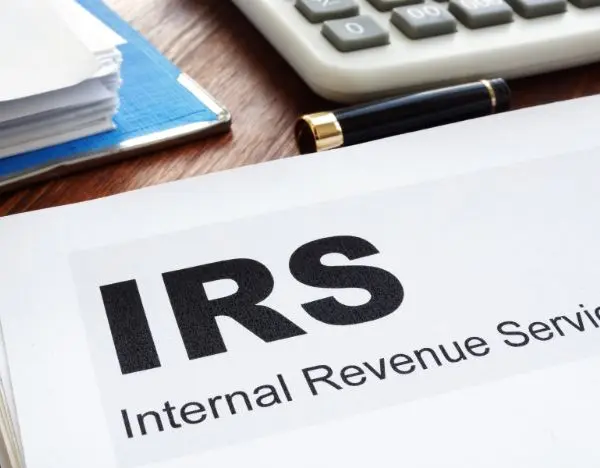Consequences of ERC Fraud

Recently, the focus on alleged Employee Retention Credit (ERC) fraud has increased, raising awareness among business owners about the potential consequences. At Candice Fields Law, PC, we can help individuals understand the legal implications of ERC fraud and provide guidance on how to navigate these complex issues. If you are seeking a knowledgeable defense lawyer, our team is here to assist you. Contact us today.
What is the ERC?
The Employee Retention Credit (ERC) is a tax relief measure that was part of the U.S. government's response to the COVID-19 pandemic. It aims to help businesses that manage to keep their employees on the payroll during the economic disruptions caused by the pandemic.
Introduced under the Coronavirus Aid, Relief, and Economic Security (CARES) Act in March 2020, the ERC provided a refundable tax credit to eligible employers for wages paid and certain health insurance costs if they were affected by COVID-19 in specific ways. This included businesses that experienced a full or partial suspension of their operations due to government-mandated COVID-19 restrictions or significant declines in gross receipts compared to 2019.
The credit originally covered 50% of qualified wages up to $10,000 per employee annually for wages paid after March 12, 2020, and before January 1, 2021. Subsequent legislation expanded and extended the ERC, increasing the credit rate and the wage limit, extending the eligibility period into 2021, and making other adjustments to increase its accessibility and benefit to employers.
The ERC was designed to encourage employers to keep staff employed during periods of uncertainty and economic slowdown, thereby reducing layoffs and supporting the continuation of worker paychecks.
What Constitutes ERC Fraud?

ERC fraud generally involves any action businesses take to deceitfully claim the Employee Retention Credit when they are not eligible, or to inflate the amount of the credit they receive. Given the substantial financial benefits under the ERC, there's a high potential for misuse, prompting strict scrutiny from federal authorities. Here are some common scenarios that could constitute ERC fraud:
Ineligibility Misrepresentation
This involves businesses claiming the ERC despite not meeting the eligibility criteria, such as not experiencing a significant decline in gross receipts or not being subject to a full or partial suspension of operations due to government orders related to COVID-19.
Exaggerating Payroll Costs
Some businesses may inflate the number of eligible wages paid to employees to increase the amount of the credit. This can include reporting higher wages than were actually paid or claiming credits for wages not paid for qualifying reasons.
Claiming Credits for Non-Qualifying Employees
This type of fraud includes claims for employees who do not qualify under the ERC guidelines, such as those not employed during the eligible periods or those whose wages are not eligible for other reasons.
Manipulating Business Operations
Some businesses might falsely claim that they were more affected by the pandemic than they actually were, such as misrepresenting their operational status or the impact of governmental orders on their business.
Using False Information or Documents
Submitting false information or forged documents to support an ERC claim, such as fake payroll records or altered financial statements, is a clear case of fraud.
Multiple Filings and Identity Misuse
Attempting to claim the ERC multiple times through different entities or using false identities or business information also constitutes fraud.
Addressing such issues requires meticulous documentation and honest reporting by businesses. Businesses that are suspected or accused of ERC fraud face potential financial penalties and criminal charges, underscoring the importance of compliance and transparency when claiming such credits.
Consequences of ERC Fraud
The consequences of Employee Retention Credit (ERC) fraud can be severe and multifaceted, affecting both the criminal and civil aspects of a business’s operations. Here’s a detailed look at how these consequences unfold:
Criminal Consequences
- Criminal Charges and Prosecution: Individuals involved in ERC fraud can face criminal charges such as fraud, making false statements to the government, and wire fraud. These charges are serious and can lead to criminal prosecution.
- Potential Imprisonment: If convicted, the penalties can be severe, including prison time. The length of imprisonment varies based on the extent of the fraud, the amount of money involved, and the defendant’s prior criminal history.
- Fines and Penalties: In addition to or instead of imprisonment, courts can impose substantial fines. These fines often exceed the amount of money involved in the fraud to serve as both a punishment and a deterrent against future violations.
Civil Consequences
- Financial Restitution and Penalties: On the civil side, businesses and individuals may be required to pay restitution, which involves reimbursing the government for the amount of the improperly claimed credits, plus penalties and interest. These financial repercussions can be substantial and financially debilitating for a business.
- Audit and Increased Scrutiny: Those accused or convicted of ERC fraud may find their entire financial and business operations subject to audits and increased scrutiny from the IRS and other regulatory bodies. This can lead to additional findings of non-compliance with tax laws or other financial regulations.
- Loss of Business Licenses and Privileges: Conviction or even accusations of fraud can lead to the revocation of business licenses or privileges, significantly affecting the ability to operate legally and profitably.
- Damage to Business Relationships and Reputation: The reputational damage from being associated with fraud can be long-lasting and far-reaching. It can affect relationships with vendors, customers, banks, and investors, potentially leading to lost contracts, business opportunities, and access to capital.
- Civil Lawsuits from Affected Parties: Apart from government actions, there may also be civil lawsuits from private parties who claim to have been harmed by the fraudulent actions. This can include investors, partners, or other stakeholders who feel misled or financially harmed by the fraud.
The combined weight of these criminal and civil consequences can threaten the very survival of a business and severely impact the personal lives and professional futures of those involved. Understanding these potential outcomes highlights the importance of compliance and the need for legal defense if facing such accusations.
How To Tell You're Being Investigated for ERC Fraud
If you're concerned about potentially being investigated for Employee Retention Credit (ERC) fraud, several signs may indicate federal authorities are examining your claims. Recognizing these signs early can be crucial for preparing an effective response with the help of legal counsel. Here are key indicators that you might be under investigation for ERC fraud:
- IRS Audit or Examination Notice: One of the most direct indicators of an investigation is receiving a notice from the IRS stating that your business's tax returns are being audited or examined. This notice might specifically reference the ERC claims.
- Requests for Documentation: If the IRS or any other federal agency requests extensive documentation related to your ERC claims, such as payroll records, financial statements, and correspondence related to your business’s operations during the pandemic, it could be a sign of an investigation.
- Interview Requests: Being approached by IRS agents or federal investigators for interviews regarding your ERC claims is a significant indicator. They may want to interview you, your employees, or even your accountant regarding the specifics of your ERC claim.
- Bank or Financial Inquiries: Unusual inquiries from your bank or financial institutions about transactions related to your ERC claims could indicate that they have received subpoenas or requests for information from federal authorities.
- Increased Scrutiny of Related Filings: Notice that other aspects of your business’s tax filings or business operations are being scrutinized more than usual could be related to an investigation into your ERC claims.
- Communication from a Federal Agency: Any direct communication from a federal agency, such as the Department of Justice (DOJ) or the Treasury Inspector General for Tax Administration (TIGTA), could indicate an investigation. These communications might request information or notify you of an investigation.
- Consultant or Preparer Being Investigated: If you learn that the consultant or tax preparer who assisted with your ERC claim is under investigation for issues related to the ERC or other tax credits, this could also affect you.
- Legal or Professional Advice: If your legal or financial advisors suggest that your ERC claims may have attracted federal attention, it’s wise to take their concerns seriously.
Recognizing these signs is the first step in preparing an adequate defense. If you suspect that you are being investigated for ERC fraud, it is crucial to contact a knowledgeable attorney who has experience in tax law or criminal defense related to financial crimes immediately. They can guide you through the process, help you understand your rights, and represent you effectively against any charges or claims.
What To Do If You're Charged with ERC Fraud
Taking prompt and decisive actions is crucial if you're charged with Employee Retention Credit (ERC) fraud. Here’s what you need to do:
Hire a Criminal Defense Lawyer
Immediately contact a criminal defense lawyer with experience in ERC fraud cases. Engaging a lawyer like Candice Fields at the outset can critically shape the course of your defense.
Stay Calm and Do Not Panic
It’s vital to remain calm. Being charged does not equate to being convicted, and you have rights that protect you.
Avoid Discussing Your Case
Refrain from discussing the details of your case with anyone but your lawyer. Conversations outside this circle can be used against you in legal proceedings.
Gather Relevant Documentation
Compile all pertinent documents, including financial records, payroll data, any communication regarding the impact of COVID-19 on your business, and interactions with tax advisors.
Comply with Legal Requests
Ensure you comply with all legal demands and meet all deadlines, as failing to do so can complicate your case further.
Understand Your Rights
Make sure you understand your rights, such as the right to remain silent and the right to an attorney.
Develop Your Defense Strategy
Collaborate closely with your lawyer to craft a robust defense strategy, whether it involves disputing the prosecution’s claims, demonstrating your adherence to the law, or considering a plea bargain if it suits your case.
Stay Informed
Keep yourself informed about any developments in your case and pertinent changes in the law.
By taking these steps and securing experienced legal representation from Candice Fields Law, PC you can confidently and assertively navigate the complexities of an ERC fraud charge.
How an ERC Fraud Defense Lawyer Can Help
We understand the gravity of facing charges for Employee Retention Credit (ERC) fraud. As your defense lawyer, we provide comprehensive support and legal experience to navigate these challenging circumstances. Here’s how we can help:
Strategic Defense Planning
We meticulously analyze the specifics of your case, leveraging our deep understanding of federal fraud laws to develop a robust defense strategy. Our approach is tailored to your unique situation, focusing on minimizing potential penalties and aiming for the best possible outcome.
Navigating Complex Legal Systems
ERC fraud cases involve intricate legal procedures and regulations. Our extensive experience in handling federal fraud cases equips us to skillfully navigate these complexities, ensuring that every legal avenue is explored and utilized in your defense.
Representation in Court
If necessary, we represent you in all legal proceedings, from preliminary hearings to trial. Our presence aims to ensure that your rights are protected at every stage and that you have a strong, articulate advocate on your side.
Negotiation and Plea Bargaining
When appropriate, we negotiate with prosecutors to reduce charges or penalties. Our negotiation strategies are backed by a thorough assessment of the evidence and potential outcomes, ensuring that any plea deal is in your best interest.
Documentation and Evidence Management
We help gather and manage the necessary documentation and evidence to support your defense. This includes financial records, communications, and any other pertinent information that can demonstrate compliance or mitigate the allegations against you.
Ready to Defend Your Future? Contact Candice Fields Law, PC Today
Facing ERC fraud charges can be daunting, but you don't have to navigate this challenge alone. At Candice Fields Law, PC we're equipped with the knowledge, experience, and dedication to defend your rights and secure the best possible outcome. Don’t wait—protect your business and your future by reaching out to us now. Let’s discuss how we can support and defend you.





